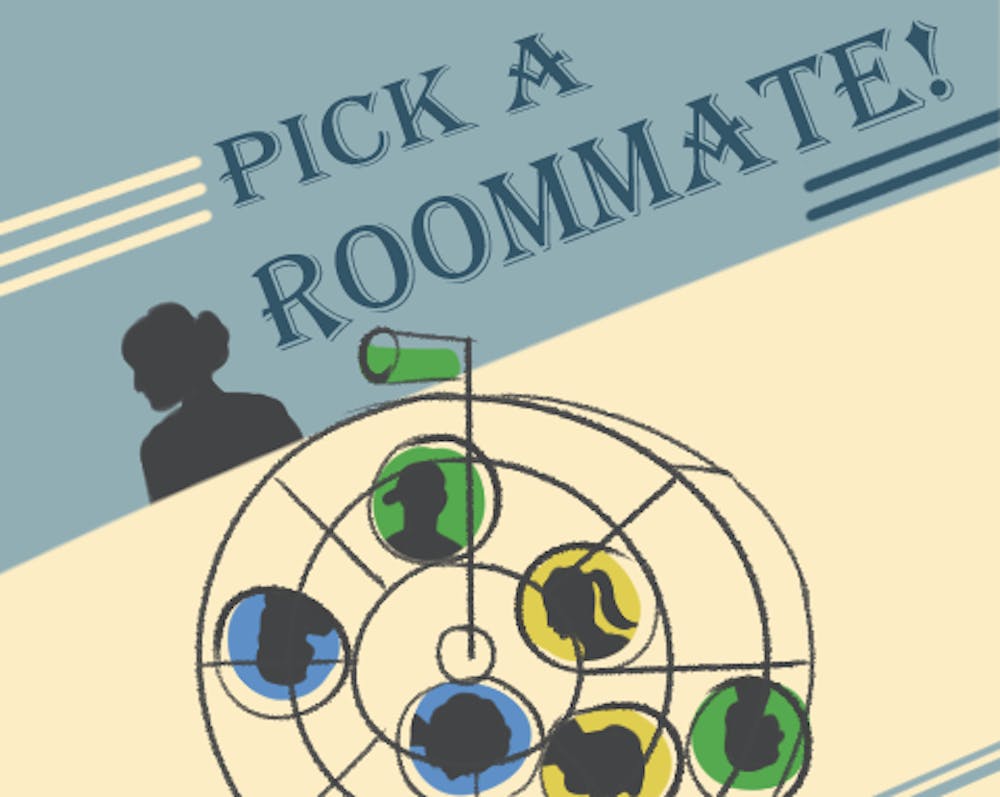Going from high school to college is a novel transition that notably includes sharing a tiny room with a stranger that a computer algorithm randomly selects for you. Instead, many students have taken advantage of social networks to select their own roommates. However, starting with the class of 2026, Hopkins no longer allowed students to select their own roommates and mandated all students to be randomly paired with a roommate.
When we choose our own roommates, we often gravitate toward people with similar cultural or regional backgrounds or even those with common interests, although the Hopkins student body does feature a multitude of different nationalities, ethnicities, religions and languages.
College is a unique time to meet people from diverse backgrounds, but by seeking out roommates just like themselves, students may box themselves in.
Other universities like Duke and Dartmouth also have random roommate policies in order to ensure that students are interacting with peers from different backgrounds.
Dartmouth Professor in Economics Bruce Sacerdote goes as far as to argue that students are accepted to elite schools because admissions officers think they will make a valuable contribution to the incoming class. Teaching your peers, in addition to learning from them, is “part of the deal.” While that occurs in the classroom, universities want it to occur in dorm rooms, too.
I recognize that students can seek out peers who are different from them beyond their roommate, such as through classes or clubs, but I would argue that for many students, their social connections and network, at least during freshman year, often stem from their roommate.
There’s also empirical support for random roommate assignments. A review of data from the United States Air Force Academy found that white soldiers who were randomly matched with Black roommates were found to be more accepting of other racial groups than white soldiers who were not. Exposure to different backgrounds can erode prejudices and promote an open-minded, accepting student body.
When students choose their own roommates, they may feel pressure to become close or even best friends with them and become disappointed when that doesn’t happen. On the other hand, with a random roommate, there are fewer preconceived notions of how your relationship should be. It’s easier to accept that you and your roommate aren’t super close if that ends up being the case.
I understand that, for some students, specifically those far from home, it may be a comfort to know that you have a roommate who you chose and who you can count on being friends with. However, an immediate friendship with a roommate may give students tunnel vision — they might focus on being friends with only that person rather than seeking out new friendships.
College is all about new experiences, including discovering interests and learning more about ourselves. By choosing roommates who mirror our friends at home or share many of the same hobbies as us, we don’t have the same opportunity to grow from our high school selves.
Understandably, this approach may make some students feel uncomfortable, and I am empathetic to these concerns. A random roommate system must have accessible means for students to switch roommates if they feel distressed. Students can also determine their relationship with their roommate after being assigned and can choose to not be friends with a roommate if they want. Ultimately, the random roommate policy is only for one year, in which students have several opportunities to form fulfilling social connections on campus outside of their dorms.
Importantly, students are not matched completely randomly. The freshman roommate survey considers how compatible two people will be as roommates, featuring questions on matters like cleanliness and sleep schedules. This survey is critical in matching students to best avoid conflicts.
When students choose roommates, they might do so based on compatibility as friends, not as people sharing living quarters. Conflicts may arise between two people who love the same music and have great conversations but simply butt heads when living in the same space. It is ultimately more important to coexist peacefully with your roommate than to be their close friend.
The random roommate policy Hopkins has instituted for the Class of 2026 is important to promote a more inclusive student body and encourage connections between peers with diverse backgrounds and interests.
Samhi Boppana is a sophomore from Dublin, Ohio majoring in Molecular and Cellular Biology and Political Science.





